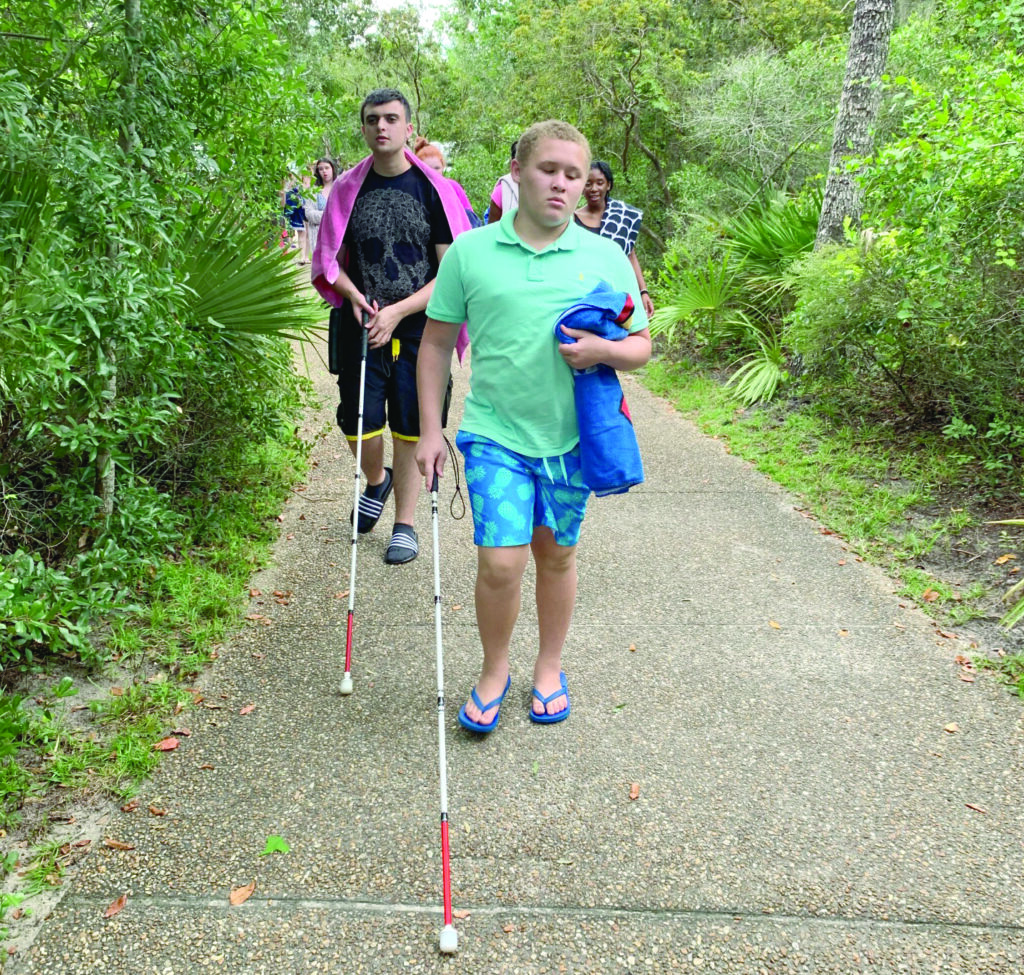Florida Center for the Blind hosts teen transition program

Past participants of the Florida Center for the Blind’s teen transition program are shown during one of the different excursions that are part of the program, which teaches independent living skills. [Submitted]

Past participants of the Florida Center for the Blind’s teen transition program are shown during one of the different excursions that are part of the program, which teaches independent living skills. [Submitted]
No one gets a free pass in the Florida Center for the Blind’s teen transition program.
The program focuses on aiding visually impaired children and adults ages 14 to 22 in their transition from high school to their next step in life, whether it’s college, work or independent living.
“The goal is to really help teens move from the home, into their own… you know, kids are moving out. They’re moving out of their home. They’re going out on their own,” said Sue Draddy, the center’s chief development officer. “They’re going off to college. They’re at a time when they’re completing high school and going out to work. So, we offer solutions through all of that.”
The Florida Center for the Blind, located at 1411 NE 22nd Ave., serves eight surrounding counties and a few hundred visually impaired teenagers in its year-round teen transition program, which hones skills ranging from cooking and laundry to college applications and job interviews.
During the school year, participants spend one weekend of the month together for various lessons, field trips and work experiences.
Career exploration is a large part of the program’s focus. The teen transition program welcomes guests from various industries to talk with the participants about possible career paths in fields that might interest them.
“Does your visual disability preclude you from certain jobs? And if it does, what other career paths are there,” Anissa Pieriboni, the center’s CEO said.
But the fun ramps up in the summer when school gets out.
In a sleepaway-style summer camp, students spend up to two weeks in an immersive experience that throws them right into the real world.
“Their days are full,” Pieriboni said. “And when I say full, I mean 16-hour days.”
Participants are paired with roommates. They are responsible for getting themselves up in the morning and reporting to class or work.
Students visit local companies to learn about career opportunities. Throughout the day, they earn credits based on performance. The credits pay for hypothetical bills.
They must pay their cell phone bill, their electric bill and rent.
Phones have been confiscated, lights have been disconnected and some have been “evicted” from their rooms if they don’t earn enough credits, Pieriboni said.
“It’s not easy. They got to really think through it,” she said. “It’s done in fun, but in serious attitude. I’ve seen huge growth every time we’ve done that in the summer.”
There wasn’t an immersive experience last summer due to the COVID-19 pandemic. However, the program is expected to return in 2021.
For years, the number of participants has averaged about six. The teen transition program is preparing for at least 12 this year. While the program is helpful to those who attend, Pieriboni admits the separation can be hard, especially on the parents.
“That separation is hard… but the growth is immense,” she said. “All of a sudden a child realizes; I can do this. I may spill the milk, but guess what, any kid learning to pour milk is going to spill their milk.”
The teen transition program and the other programs at the center are free. Information about the services is available at flblind.org or by calling 352-873-4700.





